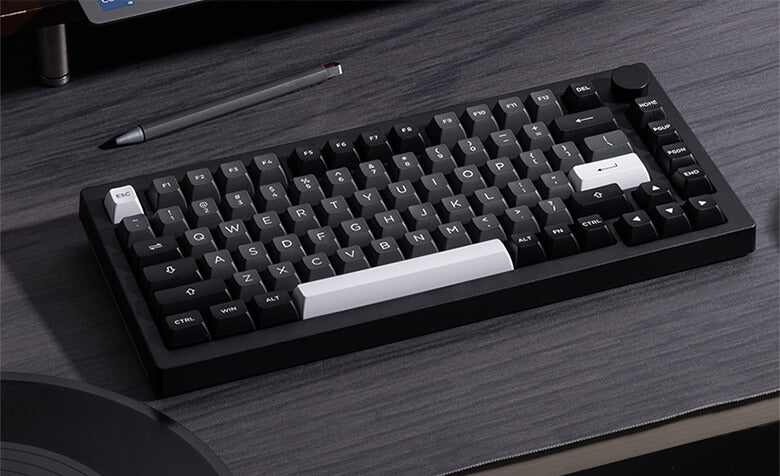IF you're in the market for a new keyboard, you've likely come across mechanical keyboards and may be wondering what all the fuss is about. Whether you're a gamer, typist, or professional, you'll find that many advocate for mechanical keyboards over membrane keyboards and other common types. If you're unfamiliar with mechanical keyboards and unsure why they're worth considering, this article is for you.

MECHANICAL KEYBOARDS OFFER ENHANCED COMFORT
Mechanical keyboards provide a customizable and DIY-friendly experience, allowing for changes in key switches, keycaps, and other components. This customization can greatly improve comfort and tactile feedback. Keycaps come in various materials and manufacturing processes. For instance, materials like ABS, PBT, or epoxy resin offer different feels and durability. PBT, in particular, is highly favored for its thickness and durability.
At Tapelf, our keycaps are primarily crafted from PBT material, allowing you to select your preferred keycap to personalize your keyboard.
The switches in mechanical keyboards are crucial components that contribute to an excellent typing experience. These switches come in three main types: clicky, linear, and tactile, with different colors representing various switch types. For more information on mechanical keyboards basics, you can refer to this article: "To People That Want To Start Out With Mechanical Keyboards But Are Afraid To Get Started."
MECHANICAL KEYBOARDS PROVIDE SUPERIOR TYPING EXPERIENCE AND FEEDBACK
One of the most appealing aspects of mechanical keyboards is their superior typing experience and feedback. They offer clear feedback from key presses, switches, to key rebound, reminiscent of using a typewriter. This stands in stark contrast to membrane keyboards, which are softer and quieter to use.
For typists, gamers, streamers, programmers, and others who spend extensive time using keyboards, the handling of multiple keystrokes is crucial. Mechanical keyboards excel in this aspect as each key is individually registered. This ensures that even when pressing keys near-simultaneously, they are registered correctly.
In contrast, membrane-based keyboards often struggle with simultaneous key entry or rollover due to their design, which features multiple pressure pads on a single membrane. As a result, pressing too many keys at once or typing quickly may result in some keystrokes not being registered.
MECHANICAL KEYBOARDS OFFER LONGER LIFESPANS


The space bar, one of the most frequently used keys, requires more force for registration compared to keys like ESC. Additionally, replacing a dead key can be challenging. However, mechanical keyboards address these issues by featuring individual key switches, each with a lifespan of over ten times that of a membrane switch—typically ranging from 25 million to 50 million keystrokes.
Furthermore, many mechanical keyboards are constructed from durable materials such as aluminum alloy, increasing their longevity. In some cases, damaged parts like buttons or switches can be easily replaced.
In summary, the above points outline why mechanical keyboards are a worthwhile investment. Are you currently using a mechanical keyboard?


